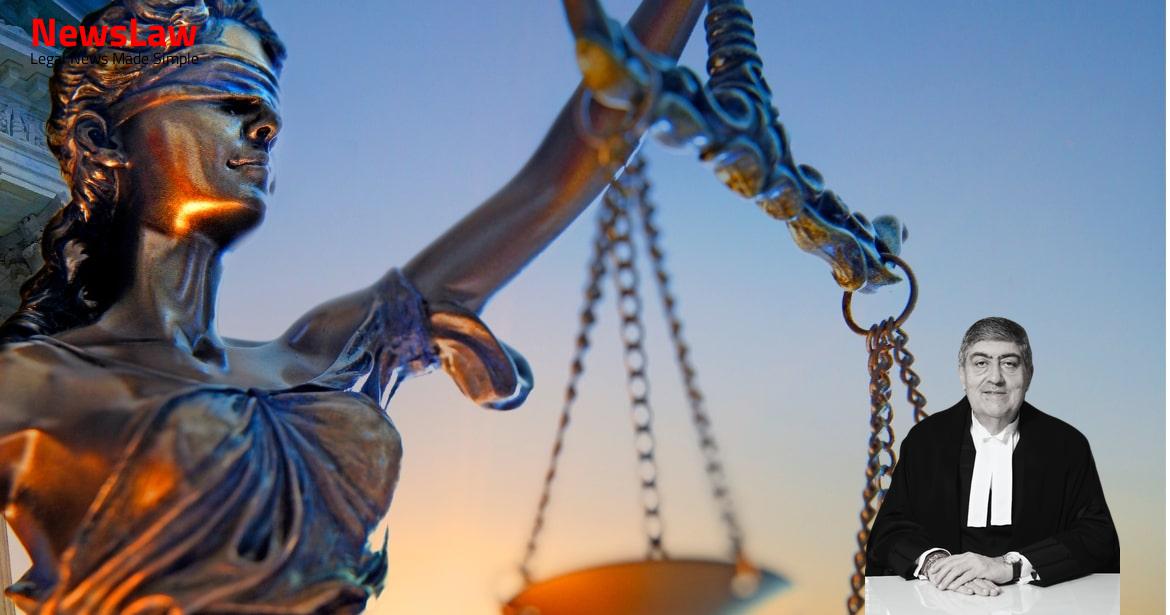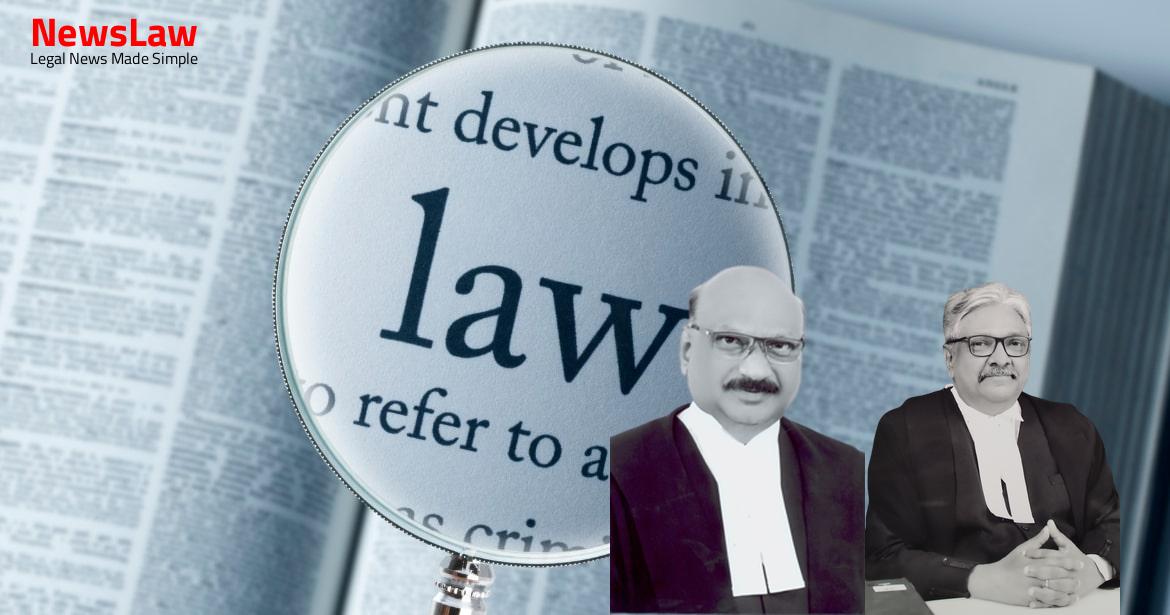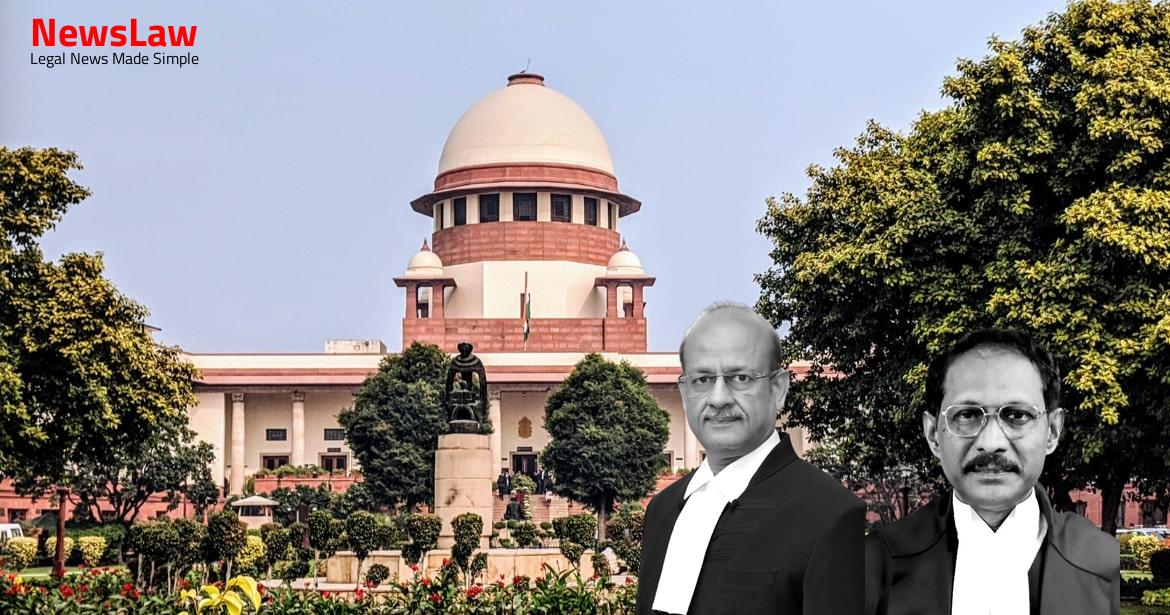Analyzing the court’s legal perspective on defining public servants in corruption cases is essential for understanding the complexities of the law. This summary delves into the nuanced interpretation of statutes to determine the status of individuals involved in alleged corrupt practices. The court’s thorough analysis plays a crucial role in shaping the legal framework surrounding public servants in cases of corruption. Stay tuned to unravel the legal intricacies and implications of this significant ruling.
Facts
- Chargesheet filed on 25.04.2017 against accused including respondent under the Prevention of Corruption Act and IPC.
- Appeal from the judgement of the High Court of Gujarat in Criminal Revision Application No 1188 of 2017.
- Allegations against respondent, a Trustee of Sumandeep Charitable Trust, include corruption in admission processes to a medical university.
- FIR filed by Dr. Jasminaben against accused including the respondent for demanding money for admission during demonetization.
- Raids recovered undated cheques and fixed deposits, alleged part of corruption scheme.
- State of Gujarat appealing against the High Court’s decision to discharge the accused.
- Incriminating conversation captured on audio video camera, discharge application filed by respondent.
- The application made by the petitioner was rejected by the District and Sessions Court on 29.11.2017.
Also Read: Legal Analysis on Arbitration Petition Limitation Period
Issue
- The issue of whether the respondent-trustee is considered a ‘public servant’ under Section 2(c) of the PC Act is the key point of contention.
- This question can be divided into two parts for better understanding and analysis.
- The first part involves establishing whether the respondent, as a trustee in the Sumandeep Charitable Trust that sponsors the University, falls within the definition of a public servant.
- Determining the respondent’s status as a public servant is crucial for further legal considerations in the case.
Also Read: Analysis of High Courts’ Jurisdiction and Court Orders Under Article 142
Arguments
- The counsel argued that private institutions like universities can perform public functions and need not be exclusive to the State.
- Sanction was obtained from the Charity Commissioner out of caution, and there was no necessity for obtaining sanction in such cases.
- Deemed universities have a public duty of granting degrees, equivalent to that of regular universities.
- The term ‘University’ in the PC Act should be interpreted purposively, as per the UGC Act distinctions.
- The High Court held that a Deemed University cannot be considered a regular University, thus the respondent cannot be termed a public servant.
- The lack of authority to grant sanction should not result in non-prosecution, and technicalities should not hinder the object of justice.
- Criminal statutes must be construed strictly, as per the case of K. Veeraswami v. Union Of India.
- The respondent, being a trustee, argued not to be termed a public servant as per the PC Act’s definition.
- The term ‘University’ in the PC Act does not include institutions ‘deemed to be University,’ as per the High Court decision.
- The appellant argued for a broad interpretation of the PC Act as a welfare legislation to prevent corruption.
- The sanction obtained from the Charity Commissioner is invalid as he cannot be considered a Competent Authority to remove or appoint a Trustee.
- No valid or proper sanction was obtained for prosecuting the respondent.
- The High Court correctly held that Section 2 (c) (xi) is inapplicable as the Institution was deemed to be a university.
- The term ‘shop’ in the context of the ESI Act can be defined with reference to relevant Shops and Commercial Establishments Acts enacted by State Legislatures.
Also Read: Electoral Malpractices in Mayor Election
Analysis
- Education sector in India has seen a rise, impacting the definition of ‘University’.
- The Acts under consideration are not in pari materia, leading to a potential failure of the argument.
- Corruption in India is pervasive and affecting all aspects of public life.
- The respondent’s purported disconnection from the university is in question.
- The concept of public duty is crucial in determining public servant status.
- The High Court’s exclusion of ‘Deemed University’ from the PC Act’s definition of ‘University’ was found incorrect.
- The legislative debates pre-PC Act enactment highlight relevant intentions.
- The technical definitions under the UGC Act should not be imported to the PC Act.
- Interpreting ‘University’ under the PC Act requires independent assessment.
- The spirit and application of different Acts do not overlap.
- The duty performed for the public interest is a critical consideration for public servant status.
- The use of ‘any’ in the PC Act definition emphasizes a wide coverage of public servants.
- Definition of ‘public servant’ under Section 2(c) of the PC Act includes Vice-Chancellors, members of governing bodies, professors, lecturers, and other employees of a University.
- A person holding an office authorized to perform any public duty is considered a public servant under the PC Act.
- A ‘deemed to be University’ is recognized under Section 3 of the UGC Act.
- Deemed Universities may be declared as such by the Central Government, and the provisions of the PC Act apply to them as if they were a University.
- The objective of the PC Act includes preventing bribery and corruption and applying to individuals not traditionally considered public servants.
- The purpose of preventing corruption in educational institutions was emphasized across party lines.
- The term ‘University’ is of indefinite content and usually understood as an organization of teachers and learners with certain privileges and endowments.
- The second explanation expands the definition of public servant to include those de facto discharging public functions.
- The respondent in the case allegedly collected extra fees overprescribed amounts for allowing students to fill examination forms.
- The charge sheet disclosed the demand for a significant amount as a condition before students could appear for exams.
- The sufficiency of grounds for proceeding against the accused would consider evidence that discloses suspicious circumstances to frame charges.
- The P.C. Act aims to eradicate corruption and prevent its perpetuation.
- The Supreme Court emphasized the independence of ‘office’ from the individual filling it while interpreting the PC Act in various cases.
- The term ‘any’ in statutory interpretation may not always mean ‘every’ as seen in legal precedents.
- The interpretation of anti-corruption laws must aim to strengthen the fight against corruption.
- The phrase ‘public servant’ includes those carrying out public duties, regardless of legal technicalities.
- The argument does not appeal as it is not connected to the objects of the PC Act.
- The reliance on the judgment of the Orissa Lift Irrigation Corporation Ltd. case was deemed inappropriate.
- The referenced case pertained to enactments related to administration/regulation of universities, which is unrelated to the PC Act.
- Exercise of power under Section 227 is not appropriate in this case
- Case does not warrant discharge of the accused-respondent
- Facts and circumstances of the case do not support the discharge
- The proposition has been applied to determine the outcome
Decision
- Judgment rendered for a limited purpose
- No opinion expressed on the merits of the case
- Trial court directed to proceed expeditiously
- Impugned judgment of the High Court set aside
- Appeal allowed
Case Title: THE STATE OF GUJARAT Vs. MANSUKHBHAI KANJIBHAI SHAH (2020 INSC 366)
Case Number: Crl.A. No.-000989-000989 / 2018



